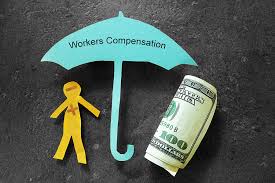
If a business experiences one workers’ compensation claim, it likely will have little effect. However, multiple claims or a high-dollar claim can impact the premiums you pay to maintain your compensation insurance. As with all types of insurance, workers’ compensation insurance depends on many people paying in and few people cashing out.
When a considerable payout is demanded, insurance premiums might rise to help the insurance backer recover a portion of their “losses.” In addition to the potential increase in premiums, there are other direct and indirect effects that a business may experience due to a workers’ compensation claim. Farmer & Morris Law, PLLC can help.
The Purpose of Workers’ Compensation Insurance
Workers’ comp insurance was initially intended to protect workers and employers from workplace mishaps. Employers pay into the plan, and the program provides compensation in the event of a work-related injury.
There are two parts to compensation insurance. The first part protects workers against injury and death in the workplace. In contrast, the second part is the employer’s liability insurance. It protects the employer by covering legal and related expenses if an employee sues following a workplace injury.
The insurance covers medical, rehabilitative therapy, missed wages, and temporary disability due to injury for workers. For the employer, it means saving those direct out-of-pocket expenses and avoiding the risk of a liability lawsuit. Most compensation payments include an agreement not to bring a lawsuit against the business.
Direct Effect of a Claim Against Workers’ Comp Insurance
The most direct effect an employer may face is increased premiums following a workplace accident. One incident likely will have little to no effect, but several mishaps could raise insurance premiums considerably. The smaller a company, the more significant the impact of a claim.
Your Experience Modification Rate (EMR or MOD) is what insurance companies use to rate your business to determine premium cost. EMR is a numerical rating based on several factors that insurance uses to determine potential risks in providing your business with Workers’ Comp insurance. If your MOD rate increases, it will likely cause an increase in premiums.
Another primary effect may be additional wages for injured workers. These cover absences and salaries that don’t qualify for compensation by Workers’ Comp. The direct effects of a workers’ comp claim may be minor. Still, the indirect effects can take an enormous toll on a business’s bottom line.
Personal Injury Lawyer Near Me 828.286.3866
Indirect Effects That Workers’ Comp Claims Have
Workplace accidents can have secondary effects that have a more significant impact than premium increases. Some of the fall-out you may experience after an accident includes:
- Work stoppages affect productivity
- Motivation drops for remaining employees
- Overtime may be necessary to recover lost production time
- Administrative costs increase with critical reporting
- Expense and time for training new employees
- Lower productivity
- Repairs or damages to equipment and clean-up following an accident
- OHSA inspections fees and potential fines
Employers can suffer a loss of reputation and a reduction in public confidence if an accident is widely publicized. Social media exposure can cause almost immediate effects on a business with one viral post. Another potential indirect effect can be different types of lawsuits.
Protection Against Third-Party-Over-Action and Other Lawsuits
Even though an employee receiving compensation may agree not to sue the employer, that doesn’t mean the employer has complete protection from litigation. There are several examples of how the worker or their family can bring a lawsuit against an employer. Some cases that can be filed against an employer include:
- Third-party-over-action lawsuits
- Loss of consortium lawsuits
- Dual-capacity lawsuits
- Consequential bodily injury lawsuits
Reasons to Keep Workers’ Comp Insurance
Some employers feel that the cost of workers’ compensation insurance is too high. They can file to be self-insured, meaning that the business would bear the total cost of any injury that occurs in the workplace. The ramifications of not carrying compensation insurance can be high, and there are many reasons to maintain comp insurance:
- OHSA investigations and fines
- State requirements, when applicable
- Personal injury lawsuits in NC do not cap claim amounts, while workers’ comp claims have caps
- Personal injury lawsuits can also include pain and suffering damages
- Self-insured or non-insured means your business pays the entire amount of an injury claim
- Lapses in coverage may cause premium increases when reinstating comp insurance
Maintaining workers’ compensation insurance is often a business decision that makes the most sense regardless of the cost of premiums.
Questions About Workers’ Compensation Insurance or Claims?
After suffering injuries from a workplace accident, an attorney on our workers’ compensation team can help. From filing your initial claim to the final settlement, Farmer & Morris Law, PLLC, can guide you through the process.
Independent contractors may also have the right to compensation benefits if you were injured while performing the same duties as full-time employees. Contact Farmer & Morris Law, PLLC, for a risk-free evaluation of your case.









